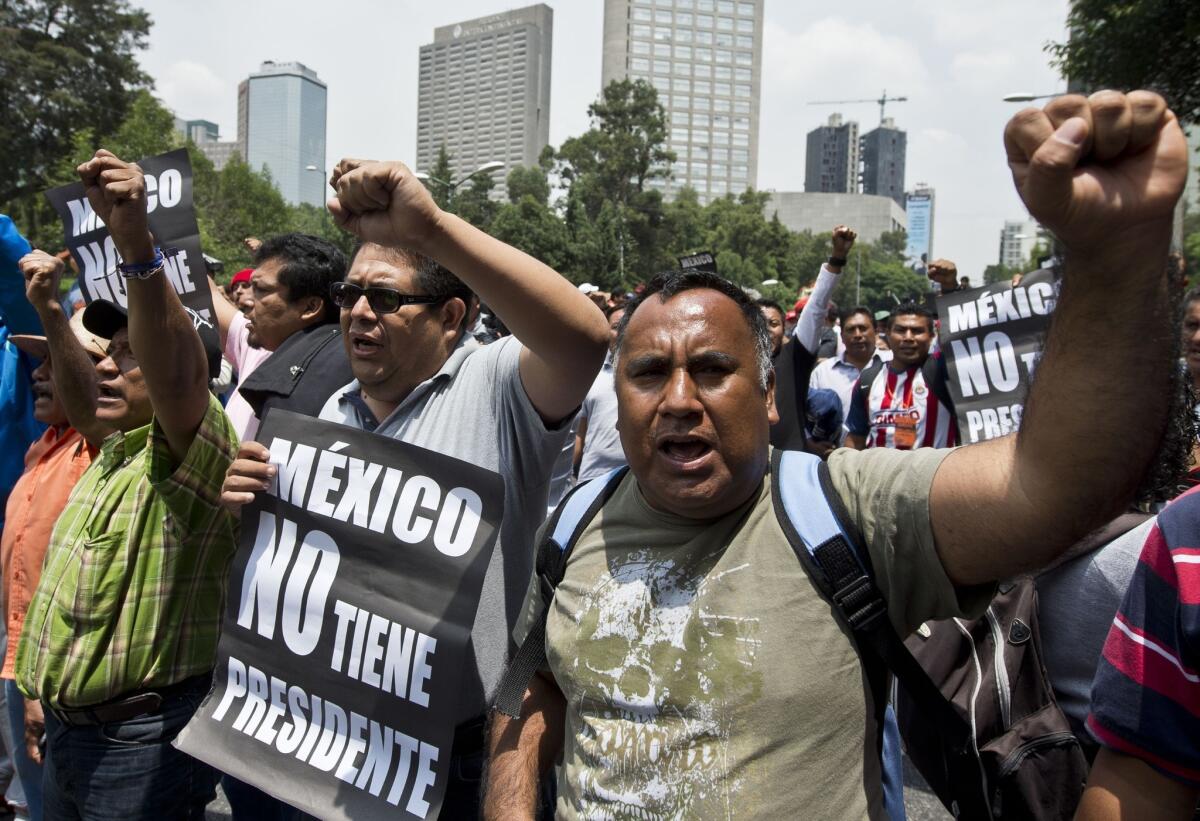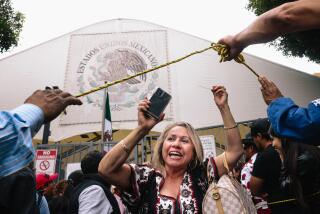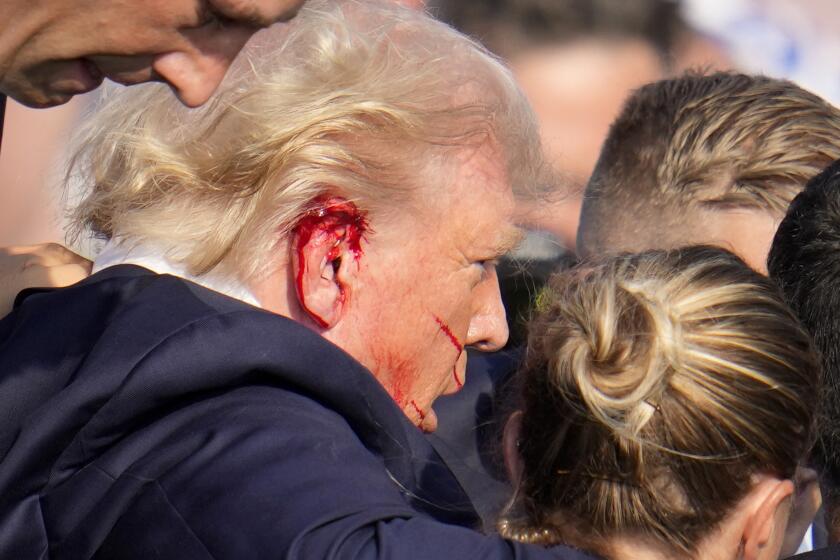Teacher strike in Mexico City drawing ire

MEXICO CITY — The thousands of teachers who have been jamming the streets in this congested capital city for nearly two weeks to protest an education reform package have no immediate plans to leave, and the threat of their continued presence is prompting calls for the government to forcibly move them out.
The teachers, members of the National Coordinator of Education Workers, or CNTE, have been marching daily and blocking major thoroughfares, trying the patience and denting the pocketbooks of residents like Carlos Fabian Manterola, a 41-year-old taxi driver.
If Mexico City’s mayor, Miguel Angel Mancera, were to kick the teachers out, Fabian said Friday, “a lot of us would applaud him…. The government leaders, they don’t care. They fly around in helicopters. We’re the ones who suffer.”
The government of President Enrique Peña Nieto is hoping to push through the last major element of an education reform in Congress that would subject teachers to evaluations. The teachers oppose this measure and argue, among other things, that the government should spend more generously on underperforming schools.
Many of the protesters remain camped out in a huge tent city in the Zocalo, the city’s historic main square. That has prompted Peña Nieto to move his state of the union speech, now scheduled for Monday, from the Zocalo’s National Palace to Los Pinos, the presidential residence, a few miles away.
Each day, the protesters have chosen to deploy in different parts of the city, including at government buildings, on a major highway, and on the road to the airport. The uncertainty has disrupted plans small and large. Flights have been missed, school bus schedules have been delayed, and a major pro soccer game set for this weekend has been postponed.
Moreover, it seems increasingly possible that the teachers could stick around for Sept. 15, when the president traditionally issues the “Cry of Dolores” (Miguel Hidalgo’s 1810 call to arms) in a festive event commemorating Mexican independence that usually sees the Zocalo packed with tens of thousands of revelers.
The teachers could help the Mexican left gain momentum in its opposition to Peña Nieto’s broader reform package, which includes a proposal to open the state oil company to foreign investment. Leftist leader Andres Manuel Lopez Obrador has called for a Sept. 8 street demonstration opposing that plan.
So far, at least, the protesters are struggling to win the locals’ hearts and minds. In a telephone poll of Mexico City residents Wednesday, the newspaper Reforma found that 59% of respondents favored the use of force against the teachers. The city’s human rights commission has declared it is not opposed to the “legitimate” use of force to clear the streets. And the chamber of commerce claims that the union has caused more than $32 million in losses for local businesses.
Though the government has not indicated how it plans to proceed, some on the left are already warning darkly of a crackdown. Leftist Congressman Ricardo Monreal said in a radio interview Friday that he had “firsthand” information that the government would be using high-pressure water cannons to clear the Zocalo this weekend.
Such fears carry serious historical weight in Mexico, where a deadly 1968 crackdown on student protesters continues to resonate as an object lesson on government’s potential to trample human rights.
After declaring that he approved of a forceful government crackdown against the teachers, Fabian, the cab driver, added an important qualifier:
Just so long as no one gets beaten, he said.
ALSO:
British Parliament rejects use of force in Syria
Pakistan overturns sentence of doctor linked to Bin Laden raid
North Korea’s Kim reportedly has ex-girlfriend, 11 others executed
More to Read
Sign up for Essential California
The most important California stories and recommendations in your inbox every morning.
You may occasionally receive promotional content from the Los Angeles Times.






